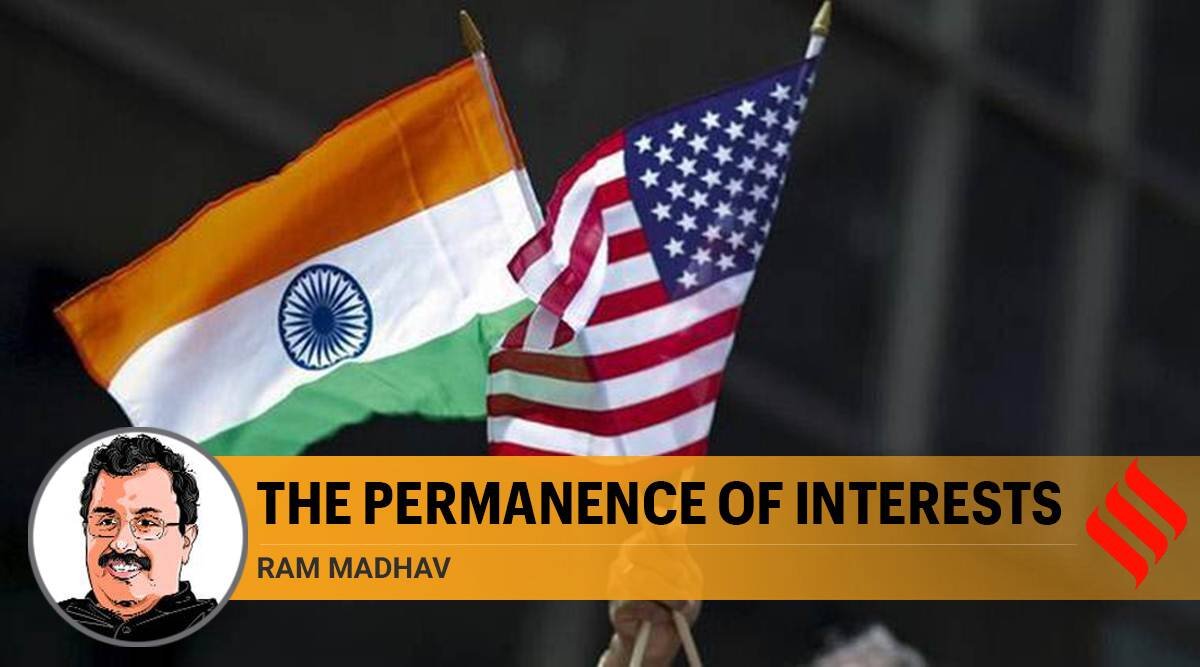
|
Getting your Trinity Audio player ready...
|
In India, some believe that Biden-Harris would be bad news for US-India relations. It must be understood that US-India ties stand on a mutually beneficial bipartisan and strong footing. But what India looks for is an America that brings with it many allies.
In American constitutional history, there were at least two occasions in the past when the presidential election ran into major disputes. In 2000, the Florida count caused a dispute between Democrat Al Gore and Republican George W Bush. Bush was declared the winner after the Supreme Court intervened. The lesser known instance was in 1876, when Republican Rutherford B Hayes eventually became the president, again after the Supreme Court’s intervention. In those two instances, there were credible reasons for dispute. But this time, although President Donald Trump insists there was “electoral fraud”, which he was talking about since April, the ground facts make that claim contestable. Yet, legal wrangles can’t be ruled out.
One major reason for disputes this time was that both camps were overconfident about victory. The Democrats had expected a tsunami in their favour, while Trump believed he would easily sail through. The results have not only thrown cold water on their hopes, but also exposed the unreliability of pollsters. The Democrats did do well in urban centres and seem to have garnered the support of a majority of women, non-white and young voters, including a majority of Indian-Americans. But they fell flat in the central and southern states, which overwhelmingly supported Trump once again. Many of these states fall in the “Bible Belt”, where the voters seem to have refused to side with the radical left agenda of the Democrats. The Biden-Harris duo would do well to remember that America, irrespective of who wins, is a “conservative nation” as the former editor-in-chief of The Economist, John Micklethwait, described it in his book.
This election was about President Trump. The results indicate that the people of America did not support the Republican nominee for another term. That brings Trump the dubious distinction of being the first president in the last hundred years to have failed to get a second term for the Republican Party. Trump put up a spirited fight. He fought not just against the Democratic Party, but a negative perception created by a range of adversaries, including the hostile media and intelligentsia. In his recent book, Do Morals Matter? (2019), Joseph Nye called Trump one of the worst presidents of America on a moral scale.
Biden fought not so much on his own policies as on Trump’s perceived failures. The Trump administration’s handling of the coronavirus pandemic and the growing racial tensions in the country were the major campaign issues for the Democrats. The Trump era did have several positives. The economy has improved. He succeeded in bringing back much-needed blue-collar jobs. But, while many believed in Trump’s ability to handle the economy better, they suspected his credentials to fight the pandemic, which caused the loss of over 11 million American jobs in the last eight months.
Trump’s biggest failure was his inability to build a team. A country of America’s size and significance can’t be run without one. Secretary of State Mike Pompeo remained in office for about 30 months. Rex Tillerson, his predecessor, served a year in office before he was shown the door. The office of the secretary of defence saw five incumbents in the last four years, the shortest tenure being that of Richard Spencer, who was acting secretary of defence for just eight days. There were a record six national security advisors in the last four years, two of them having tenures of seven and eight days respectively. Wilbur Ross, the secretary of commerce, was the only person to be in office for a full term. This loneliness at the top led Trump to depend more on his family, to the dislike of many.
Will Biden’s America be different? Domestic issues like the pandemic, race relations and economic challenges will naturally be their priority, but the Biden-Harris regime is also expected to effect important changes in the international relations arena. On China, a bipartisan consensus, witnessed during the run-up to elections, could continue. However, their major challenge would be to reverse the downward spiral of America. They have to repair relations with many countries, especially in the trans-Atlantic region. The NATO and the TPP are likely to be back on the table. Restoring America’s leadership in the UN bodies would be another priority. In the last four years, Trump had walked out of at least a dozen multilateral bodies or threatened to do so. Most significant of them was the Paris Climate Agreement. In his eagerness to make America great locally, Trump ended up making America weak globally.
In India, some believe that Biden-Harris would be bad news for US-India relations. It must be understood that US-India ties stand on a mutually beneficial bipartisan and strong footing. But what India looks for is an America that brings with it many allies. Sadly, Trump’s America was largely isolated. There were issues like Kashmir on which the Democrats had a different take. In politics, we fight with our adversaries. But in diplomacy, we reach out and win them over.
In that, India may have an advantage with the vice-president elect, Kamala Harris. In the 230-year history of America, she would be the first woman to occupy the vice-president’s office and the first Asian, non-white and Indian-origin person to reach that office. Although identified as a Black American because of her Jamaican-born father, she maintained close relations with her maternal grandparents in Chennai. Kamala’s mother was a great influence over her, so was her grandfather Gopalan. Whatever happens, never forget the golden words of former British Prime Minister Lord Palmerston, “There are no permanent friends, or permanent enemies; only permanent interests”.
(The article was originally published in Indian Express on November 7, 2020. Views expressed are personal.)



